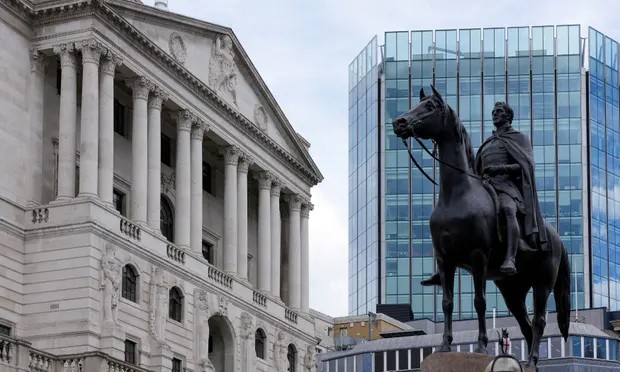UK government bond selloff continues, pushing the 20-year gilt yield to a 20-year high, as BOE reiterates bond-buying programme will end on Friday; UK economy on the brink of recession
Closing summary
The heavy selling in the UK bond markets continues, as we get closer to the end of the Bank of England’s emergency bond-buying on Friday. Pension funds are lobbying the central bank to extend it, but it said today that it would stick to its schedule.
The Bank’s statement came after the Financial Times reported that the central bank had signalled privately to lenders that it would extend the programme beyond Friday’s deadline.
The bond selloff sent yields soaring, thereby increasing the cost of government borrowing. The yield, or interest rate, on the 20-year gilt jumped by 27 basis points to 5.19%, the highest since June 2002. The 30-year yield rose 24 bps to 5.01%, while the 10-year gilt yield hit its highest level since 2008, rising 16 basis points to 4.632%.
The turmoil in financial markets has pushed UK mortgage rates sharply higher since the government’s mini-budget, with the central bank now expected to raise its base rate to 6% by next summer. The average two-year fixed mortgage rate in the UK has risen to 6.46%, from 6.07% this time last week – and compared with 2.25% a year ago, according to the latest data from Moneyfacts.
Sterling has recovered from yesterday’s slide and is trading 0.76% higher at $1.1046 in volatile trading.
The Bank of England’s chief economist Huw Pill said he still sees the need for a “significant” base rate rise in November, despite the worsening economic outlook.
Britain’s economy shrank by 0.3% in August from July, hit by a slump in manufacturing and by maintenance work that slowed the oil and gas sector, as well as a downturn in consumer-facing industries such as retail, official data showed.
Source: The Guardian



Recent Comments